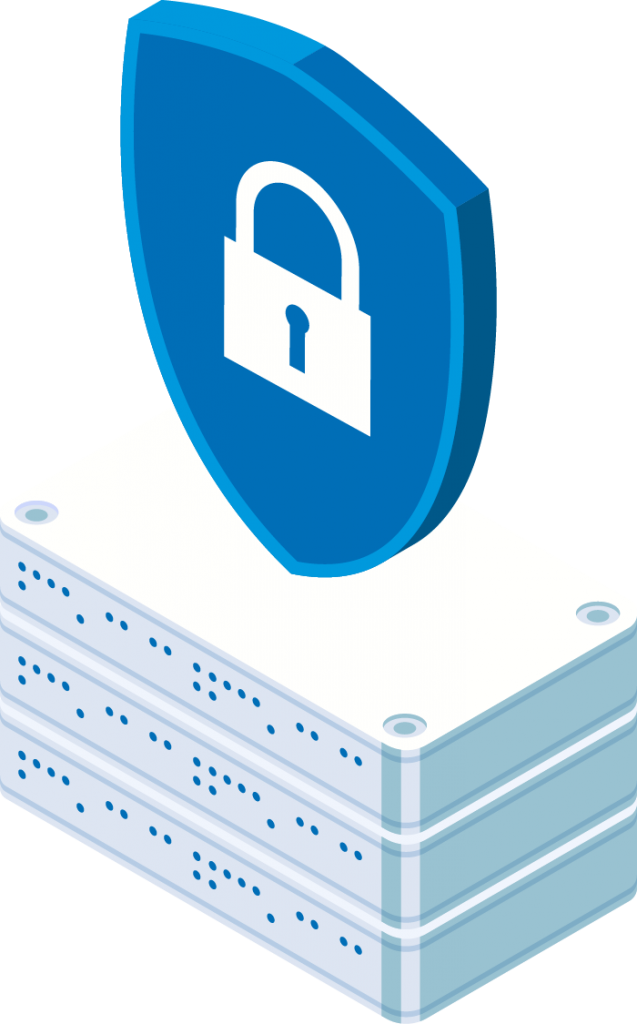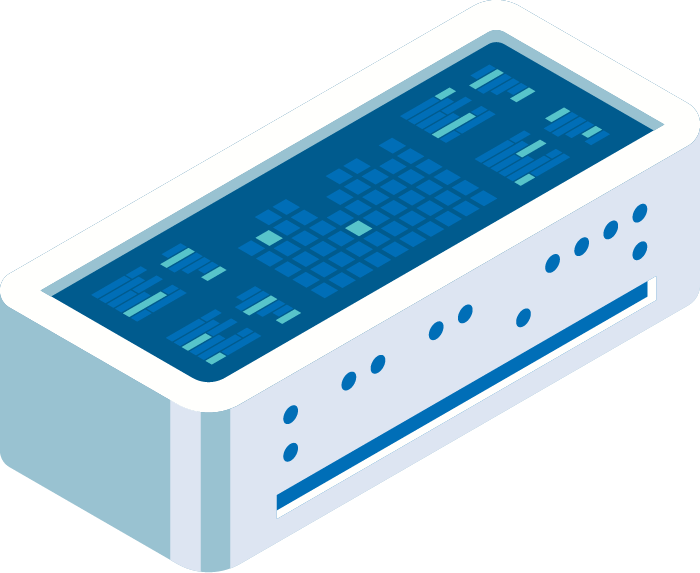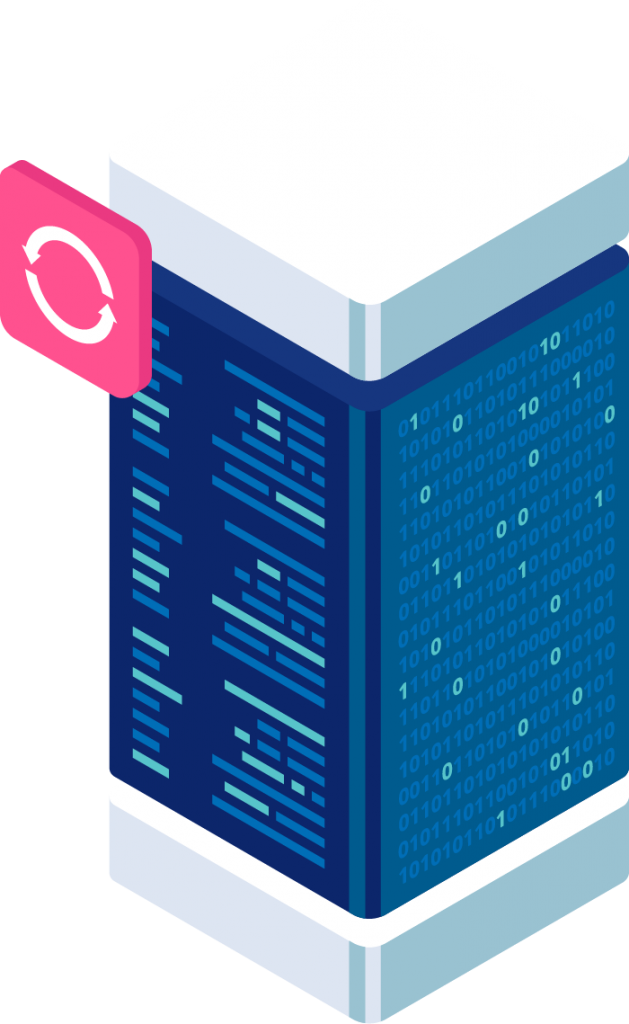Managed Cybersecurity Services.
Nothing But NET provides 24x7x365 managed cybersecurity services. We use the newest generation of proactive and sophisticated solutions to ensure our clients have the best-in-industry protection and can recover from a cybersecurity attack against their business.
Smarter Cybersecurity That Always Works
Cyber attacks feel personal, and they can make you feel like your company is being targeted. One thing to remember—it is not personal. Hackers are simply looking for an open door. From complete cloud computing management to managed endpoint and password security, businesses can have peace of mind with Nothing But NET.
The Cybersecurity Framework
Our Layered Approach.

The cloud
Malware and Content Filtering
Security protection provides first line of defense against threats on the Internet.
Email Security
Protect against inbound malware, spam, phishing, and Denial of Service attacks.
Email Security
Protect against inbound malware, spam, phishing, and Denial of Service attacks.
Multi Factor Authentication
Provides authentication factors to verify user’s credentials and the resources the user can access.
Security Assessments
Regularly scheduled assessments to protect against security threats and help you protect assets, data and guard against downtime.
Compliancy Manager
Platform to automate compliance process and generate reports that document compliance.

Compliancy Manager
Platform to automate compliance process and generate reports that document compliance.

Managed Security
Automatically scans network searching for internal threats that occur behind the firewall. Upon detection of a potential security breach, it generates an alert and delivers details on the specific threat which then will be remediated.
BaaS
Offsite data storage to a remote secure cloud based data repository.



Endpoint Security
Security suite including anti-malware, remote management, endpoint security, file security, firewall, web control and bot protection.
Monitoring
24 x 7 reviewing and analyzing of systems for availability, operations, performance, security and other operations-related processes.
Password Management Tool
Manage passwords, collaborate, and process documentation as a business.
Ransomwear Detection Monitor
Monitor for ransomwear and prevent the spread by isolating from network if detected.

Security Awareness Training and Simulated Phishing
Platform that helps you manage the ongoing problem of social engineering.

Mobile Device Management
Secure and manage PDA's and smart phones

Dark web
Dark Web Monitoring
Search capabilities to identify, analyze and proactively monitor for an organization's compromised or stolen employee and customer data.
Security Alert! A Warning About Ransomware
Ransomware is malicious software hackers use to seize access to a company’s vital information so they can then extort some form of payment (often in Bitcoin) to restore the system. Hackers effectively hold a company’s data hostage and demand a “ransom,” thus the name.
Over the past three years, business ransomware protection has taken center stage in the cybersecurity landscape. Hackers have targeted many organizations with ransomware from schools and hospitals to government sectors and small businesses.
$125 MILLION dollars are lost each year to ransomware.
How much money can your business afford to lose?
3 out of 4 companies lost access to data for at least 2 days following an attack.
How would 2 days of no data affect your business?
20+ EMPLOYEES have their accounts corrupted by 50% of ransomware attacks.
How much productivity would that cost your business?
Our Twofold Approach to Managed Cybersecurity Services
1.
Compliance
Ensure compliance for businesses working under specific industry and federal guidelines. While mitigating the cost of a cybersecurity breach or bad transition, we will also protect your company against the cost of non-compliance.
- CMMC—Cybersecurity Maturity Model Certification (CMMC)
- HIPAA / HITECH - Health Information Technology for Economic and Clinical Health
- FINRA - Financial Industry Regulatory Authority
- GDPR - General Data Protection Regulation
2.
Data Protection
Strengthen the fortress around customers’ mission-critical data with Nothing But NET’s data protection, risk assessment and cybersecurity framework.
- AntiMalware
- Content Control
- Encryption
- Firewall
- Ransomware
Glossary
CMMC
CMMC stands for Cybersecurity Maturity Model Certification. It is a unified standard for assessing and enhancing the cybersecurity posture of organizations in the defense industrial base (DIB) of the United States. The CMMC framework was created by the U.S. Department of Defense (DoD) to ensure that companies within the DIB adequately protect sensitive information, including controlled unclassified information (CUI) and federal contract information (FCI).
The CMMC framework consists of a set of cybersecurity best practices and processes that are organized into five levels of maturity, ranging from basic cyber hygiene to advanced security capabilities. Each level builds upon the previous one, with higher levels requiring more comprehensive security controls and processes.
To achieve CMMC certification, organizations must undergo an assessment conducted by an accredited third-party assessment organization (C3PAO). The assessment evaluates the organization’s compliance with the specific practices and processes outlined in the CMMC framework. The certification level awarded depends on the organization’s demonstrated cybersecurity maturity.
CMMC certification is becoming a requirement for organizations bidding on DoD contracts. It aims to strengthen the overall cybersecurity posture of the defense industrial base and protect sensitive information from cyber threats.
HIPAA
HIPAA stands for the Health Insurance Portability and Accountability Act. It is a federal law enacted in the United States in 1996 to protect sensitive patient health information and establish standards for the electronic exchange, privacy, and security of health information. HIPAA applies to healthcare providers, health plans, and healthcare clearinghouses, as well as their business associates.
The main goals of HIPAA are to:
- Ensure the privacy and confidentiality of individually identifiable health information.
- Enhance the security of electronic protected health information (ePHI).
- Establish and enforce standards for the electronic exchange of health information.
HIPAA includes several important provisions, including:
Privacy Rule: This rule sets standards for protecting patients’ personal health information (PHI) and grants individuals certain rights regarding their health information.
Security Rule: The Security Rule establishes national standards for protecting electronic health information that is created, received, maintained, or transmitted by healthcare organizations. It requires appropriate administrative, physical, and technical safeguards to ensure the confidentiality, integrity, and availability of ePHI.
Breach Notification Rule: This rule requires covered entities to notify individuals, the Secretary of Health and Human Services, and, in some cases, the media, in the event of a breach of unsecured PHI.
Enforcement Rule: The Enforcement Rule outlines the procedures for investigations, compliance, and penalties for violations of HIPAA rules.
It’s important to note that HIPAA applies to covered entities and their business associates, and it protects the privacy and security of individually identifiable health information. However, it does not cover all health information. For example, it does not apply to employment records or education records held by educational institutions.
If you have specific questions or concerns about HIPAA or how it may apply to a particular situation, it’s advisable to consult with a legal professional or an expert in healthcare compliance.
Network Audit
A network audit is a systematic examination and evaluation of an organization’s computer network infrastructure. It involves reviewing the network’s configuration, security measures, performance, and overall effectiveness to identify areas of improvement or potential vulnerabilities.
Here are some key aspects typically covered in a network audit:
Network Topology: Assessing the network’s physical layout, including the devices, cables, and connections, to ensure they are organized and optimized for efficiency.
Network Configuration: Reviewing the network’s configuration settings, such as IP addressing, routing protocols, and VLAN configurations, to ensure they align with best practices and meet the organization’s requirements.
Network Security: Evaluating the network’s security measures, including firewalls, intrusion detection/prevention systems, access controls, and encryption protocols, to identify vulnerabilities and potential security risks.
Network Performance: Analyzing the network’s performance metrics, such as bandwidth utilization, latency, and packet loss, to determine if there are any bottlenecks, areas of congestion, or performance issues impacting the network’s efficiency.
Network Monitoring and Management: Assessing the network monitoring and management tools and processes in place to ensure proactive monitoring, troubleshooting, and maintenance of the network infrastructure.
Network Documentation: Reviewing the documentation and diagrams of the network, including network maps, IP address assignments, device inventories, and network policies, to ensure they are up to date and accurate.
Network Compliance: Verifying that the network adheres to relevant industry standards and regulatory requirements, such as the Payment Card Industry Data Security Standard (PCI DSS) or the Health Insurance Portability and Accountability Act (HIPAA).
The network audit process typically involves a combination of automated tools, manual inspections, interviews with network administrators, and analysis of network logs and traffic patterns. The findings and recommendations from the audit help organizations enhance their network infrastructure, strengthen security measures, optimize performance, and ensure compliance with industry standards.
Managed IT Services
Managed IT services refer to the practice of outsourcing the management and support of an organization’s information technology (IT) infrastructure and systems to a third-party service provider. These service providers, often known as managed service providers (MSPs), take on the responsibility of proactively monitoring, maintaining and securing the client’s IT environment. Nothing But Net (NBN) is an award-winning MSP.
Managed IT services typically cover a wide range of IT-related tasks and functions, which may include:
Network and infrastructure management: This involves monitoring and managing the organization’s network infrastructure, including routers, switches, firewalls, and other networking components.
Server management: Nothing But Net oversees the setup, configuration, and maintenance of servers, ensuring they operate smoothly and efficiently. This includes tasks such as software updates, patch management, and performance optimization.
Data backup and disaster recovery: Nothing But Net can implement backup solutions to protect critical data and develop comprehensive disaster recovery plans to ensure business continuity in the event of a system failure or data loss.
Security management: MSPs employ various security measures to protect the organization’s IT environment from threats such as viruses, malware, hacking attempts, and data breaches. This includes activities like implementing firewalls, intrusion detection systems, and antivirus software, as well as conducting security audits and vulnerability assessments.
Help desk and technical support: Managed IT service providers typically offer help desk support to address end-user issues and provide technical assistance. They handle troubleshooting, problem resolution, and provide guidance to users when they encounter IT-related challenges.
Software and application management: MSPs assist with the installation, configuration, and management of software applications used within the organization. They may also handle software updates and license management.
Cloud services: Many managed service providers offer cloud-based services, including cloud infrastructure management, cloud migration, and support for cloud-based applications and services.
The primary benefits of using managed IT services include improved IT system reliability, enhanced security, reduced downtime, access to specialized expertise, scalability, and cost savings compared to maintaining an in-house IT team.
Businesses of all sizes can benefit from managed IT services, as it allows them to focus on their core operations while leaving the IT management tasks to the experts. The specific services provided by an MSP can be customized based on the unique needs and requirements of the organization.
Cybersecurity Insurance
The value of cybersecurity insurance can vary depending on several factors, including the size and nature of the business, the level of cyber risk it faces, and the specific coverage provided by the insurance policy. Here are some potential benefits and considerations regarding the value of cybersecurity insurance:
Financial Protection: Cybersecurity insurance can provide financial protection in the event of a cyber incident. It can cover various costs, such as legal fees, investigations, public relations, data recovery, business interruption, and even potential lawsuits from affected parties. This coverage can help mitigate the potentially significant financial impact of a cyber-attack.
Incident Response Support: Many cybersecurity insurance policies offer incident response support, which can be invaluable in managing and mitigating the consequences of a cyber-attack. Insurance providers often have access to specialized cybersecurity firms and professionals who can help in handling the incident effectively and minimizing the damage.
Risk Assessment and Mitigation: Cybersecurity insurance providers typically conduct risk assessments of their policyholders’ IT infrastructure and operations. This process helps identify vulnerabilities and provides recommendations for improving cybersecurity practices. By implementing these recommendations, businesses can enhance their overall security posture.
Reputation Management: Cybersecurity incidents can severely damage a company’s reputation, leading to customer distrust and potential loss of business. Some cybersecurity insurance policies include coverage for reputation management services, such as public relations support and communication strategies to restore confidence in the affected organization. These services can be instrumental in preserving a company’s reputation and customer relationships.
Compliance Assistance: Depending on the industry and location, businesses may have to comply with specific cybersecurity regulations and standards. Some cybersecurity insurance policies offer compliance assistance to help organizations meet these requirements. This support can include guidance on implementing security controls and maintaining regulatory compliance.
Third-Party Liability Coverage: If a cyber-attack results in the compromise of customer data or other sensitive information, businesses may face legal claims from affected parties. Cybersecurity insurance often includes coverage for third-party liability, protecting the insured entity against legal costs and potential damages resulting from lawsuits.
It’s important to note that the value of cybersecurity insurance should be assessed alongside other cybersecurity measures, such as robust security practices, employee training, and regular system audits. Insurance alone cannot guarantee protection against cyber threats, but it can be a valuable component of a comprehensive cybersecurity strategy. Nothing but Net will review your cybersecurity insurance policy with you making sure that your cybersecurity practice is compliant with your policy.